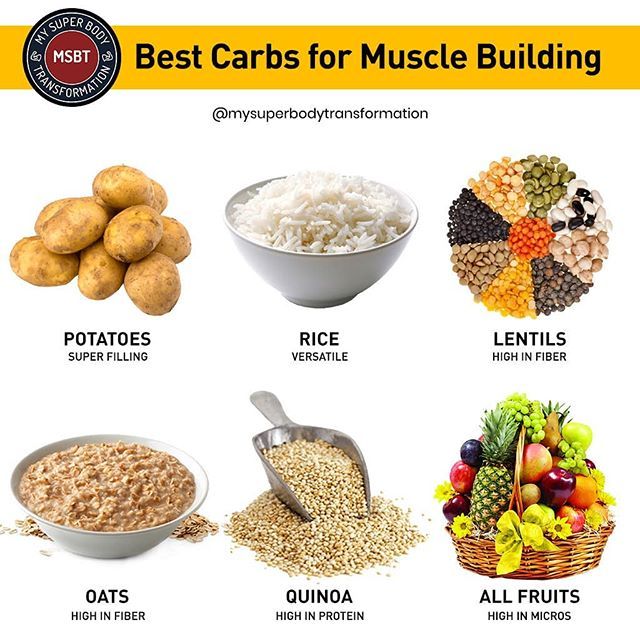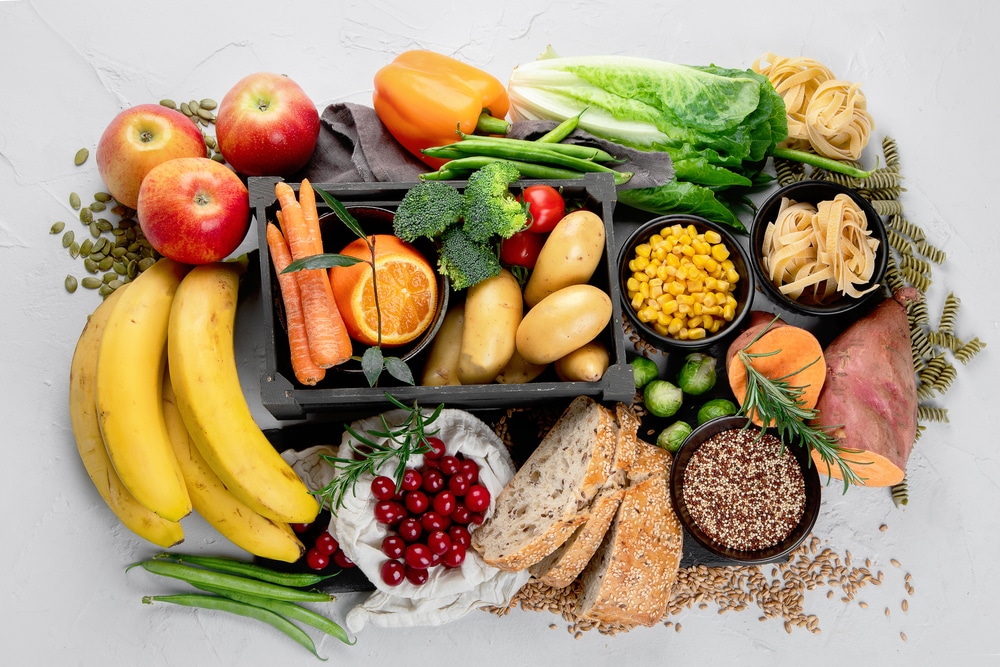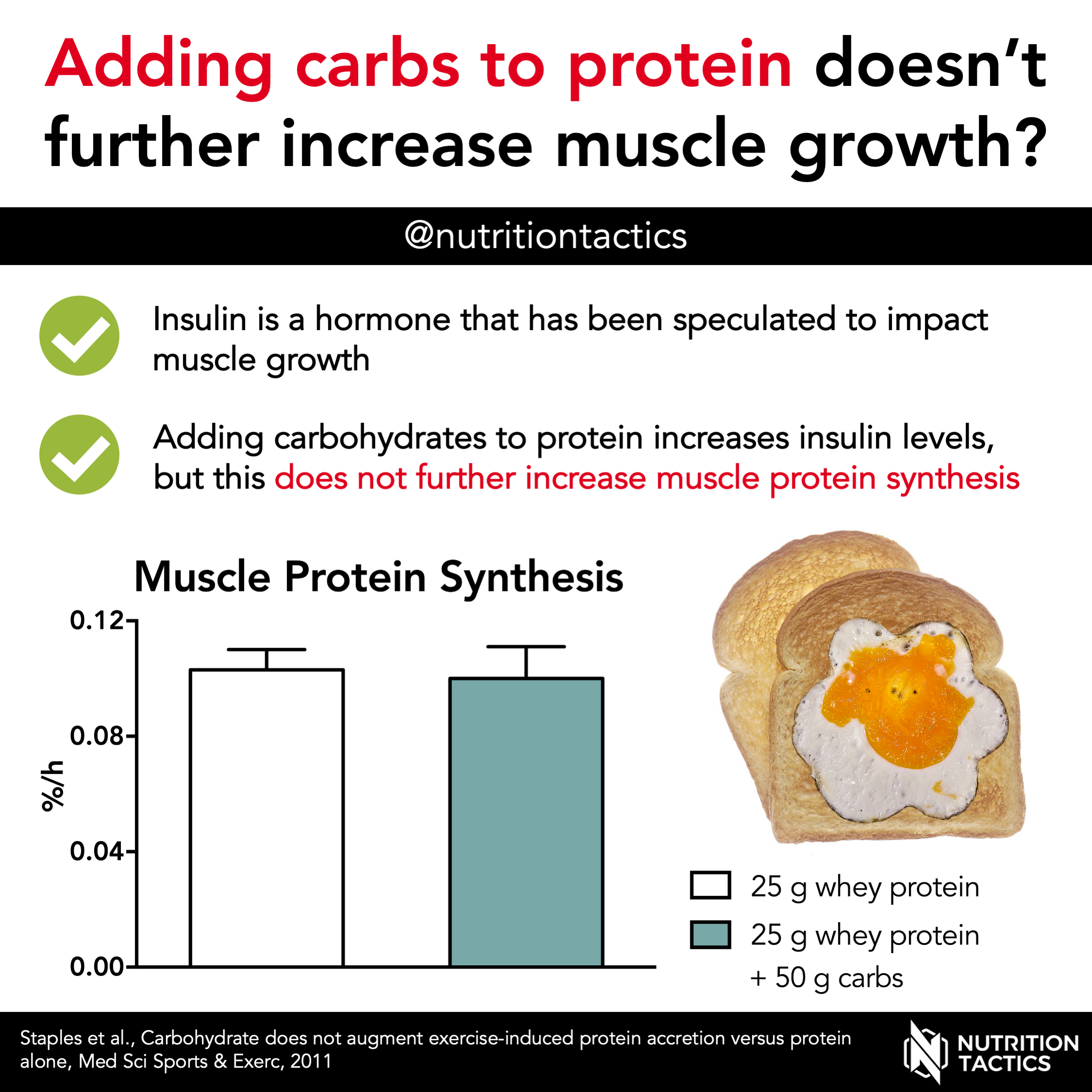Smart Ways to Optimize Carbohydrates for Better Muscle Gain in 2025
Carbohydrates play a vital role in muscle gain and overall fitness, especially for those looking to enhance their physical performance. Understanding how to effectively manage carbohydrate intake can lead to significant improvements in muscle growth and recovery. In this article, we will explore the various strategies to optimize carbohydrates specifically for muscle gain in 2025. We’ll discuss carbohydrate types, timing their intake around workouts, and how to pair them with proteins for maximum effect.

This guide will provide practical tips, expert recommendations, and the latest dietary trends for optimizing your carbohydrate intake. By the end, you’ll grasp essential concepts such as the importance of dietary patterns, the balance of macronutrients, and specific foods that support muscle growth. Let’s dive into the essential aspects of carbohydrate optimization for better muscle building.
Understanding Carbohydrates and Muscle Growth
Building on the introduction, it is crucial to recognize the relationship between carbohydrates and muscle growth. Carbohydrates are one of the body’s main energy sources, especially during high-intensity workouts, and their consumption directly influences muscle glycogen stores.
The Role of Carbohydrates in Muscle Development
Carbohydrates are foundational in fostering muscle development as they provide the necessary energy during workouts. They stimulate insulin release, a hormone that not only helps reduce blood sugar levels but also plays a vital role in muscle recovery and growth. When carbohydrates are consumed, they transform into glucose, which is stored as glycogen in the muscles and liver, ready to fuel your next training session.
Different Types of Carbohydrates
Carbohydrates can be classified into two primary types: simple and complex. Simple carbohydrates, found in sugar and certain fruits, provide quick energy but can lead to sudden spikes in blood sugar. In contrast, complex carbohydrates, such as whole grains, legumes, and vegetables, offer a more gradual release of energy, making them preferable for sustained physical activities and muscle building.
Effects of Carbohydrate Timing on Muscle Growth
Incorporating the right timing for carbohydrate consumption is essential for maximizing muscle gain. Consuming carbohydrates immediately before and after workouts can improve performance and recovery. Pre-workout carbohydrates ensure you have ample energy, while post-workout carbohydrates help replenish glycogen stores, repairing muscle tissues after physical activity.
Optimizing Macronutrient Ratios for Muscle Gain
With these fundamentals established, let’s explore how to optimize the ratios of macronutrients in your diet. A well-structured ratio of carbohydrates, proteins, and fats is crucial for supporting muscle gain and recovery.
Suggested Macronutrient Ratios
A common guideline for sports nutrition is the 40-30-30 rule, comprising 40% carbohydrates, 30% proteins, and 30% fats. For those engaged in intense strength training or bodybuilding, a higher carbohydrate intake, around 50-60%, may be more beneficial to maximize glycogen storage for training sessions.
Importance of Protein for Muscle Recovery
Although carbohydrates are vital for energy, proteins are equally important for muscle recovery and growth. Combining carbohydrates with proteins post-workout yields an anabolic effect, stimulating muscle protein synthesis and ensuring that your efforts in the gym translate to real-world strength.
Healthy Fats: A Component of Muscle Diet
Healthy fats should not be overlooked in a muscle-building diet. They are essential for hormone production, including testosterone and growth hormone, which play significant roles in muscle growth. Incorporating omega-3 fatty acids from fish, avocados, or nuts can enhance recovery and support overall health during training.
Choosing the Right Carbohydrate Sources
Following this approach, selecting the right carbohydrate sources is crucial for optimizing your diet. Not all carbohydrates are equal, and focusing on nutrient-dense options can greatly impact your muscle-building journey.
Top Carbohydrate-Rich Foods
Whole grains like brown rice, oats, and quinoa are excellent sources of complex carbohydrates that provide sustained energy. Additionally, fruits and vegetables offer essential vitamins and minerals that support muscle function and recovery. Including legumes, such as lentils and chickpeas, can also provide a significant protein boost alongside carbohydrates.
Pre and Post-Workout Carbohydrate Options
Before workouts, aim for easily digestible carbohydrates that won’t cause discomfort, such as bananas or rice cakes. Post-workout, consider options like smoothies that combine protein powder with fruits or recovery bars specifically designed with the right macronutrient ratios.
Avoiding High-Sugar Foods
It’s important to limit high-sugar foods, as they can lead to energy crashes and do not provide the necessary nutrients for muscle recovery. Instead, focus on complex carbohydrates that maintain stable energy levels and support sustained performance.
Supplementing for Success: When to Use Gainers
Building on the topic of carbohydrates, many individuals may consider using supplements, specifically weight gainers, to enhance their muscle-building regimen. However, understanding when and how to incorporate them into your diet is vital.
What Is a Weight Gainer and When to Use It?
Weight gainers are supplements designed to provide a high-calorie intake with an ideal balance of carbohydrates and proteins. They’re particularly useful for individuals struggling to meet their caloric needs through food alone, especially during bulking phases where the aim is to gain muscle mass.
Combining Gainers with a Balanced Diet
While gainers can help meet caloric goals, they should not replace whole foods in your diet. Ideally, they should be used to supplement a well-rounded diet rich in nutrient-dense foods that support muscle growth and energy replenishment.
Practical Tips for Meal Planning and Preparation
Finally, to ensure effective carbohydrate optimization, practical tips for meal planning and preparation are fundamental for success. By taking time to prepare and plan your meals, you can ensure you meet your dietary goals effortlessly.
Meal Prep Strategies for Optimal Carbohydrate Intake
Begin with a weekly meal prep that allows you to portion out carbohydrates with proteins and fats. Create balanced meals that include a protein source, complex carbohydrates, and healthy fats to ensure variety and sustain energy levels throughout the week.
Tracking Your Carbohydrate Consumption
Using apps or food journals can be beneficial for tracking daily carbohydrate intake, ensuring that you meet your targets. Accurate tracking aids in maintaining balance while supporting your muscle-building efforts.
Adjusting Your Intake Based on Activity Level
Lastly, be mindful of your carbohydrate intake based on your activity load. On higher activity days, increase carbohydrate intake for energy, and on rest days, you may choose to reduce it slightly to avoid excess calorie consumption.
Frequently Asked Questions
How many carbohydrates should I eat daily for muscle gain?
The daily carbohydrate requirement varies based on factors such as weight, activity level, and training intensity. However, a guideline for muscle gain often suggests a range of 3-7 grams of carbohydrates per kilogram of body weight.
What is the best time to consume carbohydrates for muscle building?
Carbohydrate timing is crucial; consuming them pre-workout ensures energy, while post-workout intake helps replenish glycogen stores. Timing your carbs around your workouts can significantly enhance muscle recovery and growth.
Can I gain muscle while on a low-carbohydrate diet?
While it is possible to gain muscle on a low-carb diet, it may require more careful planning regarding protein and fat intake. Carbohydrates are especially beneficial for recovery and sustaining energy during heavy workouts.

What alternative sources provide carbohydrates?
Alternative carbohydrate sources include vegetables, fruits, legumes, and grains such as bulgur and farro, which provide essential nutrients for athletic performance while also fueling muscle gain.
Are carbohydrate supplements effective for muscle building?
Carbohydrate supplements can be effective, particularly for post-workout recovery, as they help replenish glycogen stores. However, priority should always be given to whole food sources when possible.
